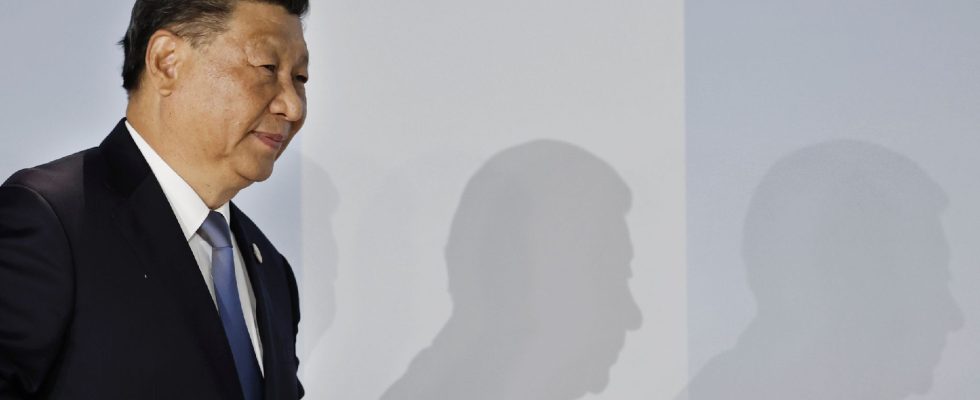China has entered an economic crisis, which in itself is a huge event. Industrial production is falling, exports are falling and employment is falling. In cities, the youth unemployment rate is above 20%. What growth remains seems to be settling on a plateau close to 2% per year, i.e. virtual stagnation considering the history of this country.
Overheating in real estate
This crisis has structural roots, which may suggest that it will last. Since the beginning of the 1980s, Chinese growth had been driven by economic liberalization and by powerful public support for investment, in all its forms: innovation, industrial capacity, real estate, infrastructure, etc. This effort was able to be financed by a massive national savings – around 40% of GDP. The problem was that both engines caught fire.
The engine of liberalization has generated the emergence of groups like Alibaba or Tencent, gigantic and ultra-powerful. The Communist Party put up with it until it considered these economic giants as uncontrollable private powers. From there were born, in addition to the setbacks of Jack Ma, the Maoist positions of President Xi Jinping, who in any case seems less and less interested in economic questions.
As for the engine of investment, it has overheated and generated overproduction in several sectors that domestic consumption is unable to absorb. This is evidenced by the collapse of the construction sector and in particular of several giants of real estate development. Builders are selling off homes to sell off their stocks and find some cash to survive. In a city like Beijing, the old housing market is collapsing. When structural overcapacity emerges, the reduction in key rates, which the Chinese central bank is currently activating to try to revive credit to households, can only have a marginal effect: you cannot make a donkey drink. am not thirsty.
Contagion in Asia
Most Western countries are net importers from China. They depend more on Chinese products than on their exports. For them, the crisis can even have positive effects via the drop in raw material prices that it could cause. The only Western country that really has to worry about the recessionary effect of Chinese disappointments on its economy is Germany. In Asia, Japan, Korea and, more generally, countries producing industrial raw materials are also exposed. Beyond the contagion effects on China’s trading partners, if this crisis were to persist – we must always remain conditional when we express ourselves on this difficult to understand economy – it would have telluric effects.
First, it would challenge the autocratic social contract whereby political freedom is exchanged for prosperity. Since the early 1980s, the phenomenal increase in living standards in China has reinforced the role of the Communist Party and constituted the basis of political stability. How would Chinese society react if the continuous increase in incomes stopped?
Return of the geopolitical pendulum
Secondly, a lasting crisis would rebalance the geopolitical dynamic between China and the United States, which may have seemed favorable until now to the Middle Kingdom. In contrast to the Chinese economic crisis, the United States is growing, has full employment and above all, the country is the scene of a dazzling reindustrialization boosted by the activist policy of the Biden administration. How would the Communist Party react to this relative decline in its influence compared to its main strategic competitor?
Thirdly, China’s current difficulties are giving new impetus, within the BRICS, to the ambitions of India, now the most populous country in the world, based on strong growth – between 6 and 7% this year – and pragmatic geopolitics. favoring alliances of circumstance. Since the 1990s, Chinese leaders have managed to thwart all crises and defy negative predictions. But this time, the situation seems to be really complicated.
* Nicolas Bouzou is an economist and essayist
